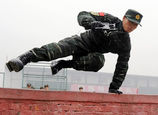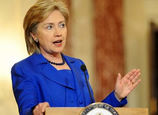
Upbeat over market
Market watchers and investors are upbeat the market's current positive performance will continue into the new year as China's economy gathers pace after seven quarters of slower growth.
Goldman Sachs is forecasting that the Shanghai Shenzhen CSI 300 Index, a gauge of the performance of 300 stocks traded on the Shanghai and Shenzhen exchanges, will advance 26 percent next year. The investment bank recommended that overseas investors increase their holdings of A shares.
"An increase of 20-25 percent is hardly aggressive compared with other stock markets," said Lipper's Feng. "But if that happens, it will signal the end of a bear market, and it's not impossible that China's market may replicate its 2006-2007 performance, when the Shanghai Composite Index surged from about 1,000 points to a record 6,124."
Regulators are hoping to stoke a new era for the market by coaxing more foreign money into the country.
In April, the aggregate cap on money foreigners were allowed to invest in domestic capital markets was increased to US$80 billion from US$30 billion.
In July, the China Securities Regulatory Commission relaxed controls over QFIIs, allowing participating funds to hold stakes of up to 30 percent in a listed company, up from 20 percent previously.
Guo Shuqing, head of the CSRC, said last month that China will further increase the quota if the US$80 billion gets used up quickly.
China is also speeding up the approval process for QFII applicants. It issued QFII licenses to 66 foreign companies in the first 11 month of this year. It issued 29 for the whole of 2011 and 13 in 2010, according to the CSRC.
Between January and November, China's foreign-exchange regulator, the State Administration of Foreign Exchange, granted quotas totaling US$14.4 billion to foreign institutions. In the 2008-11 period, SAFE granted an average annual US$2.6 billion, according to Z-Ben Advisors, a research and consulting firm.
Furthermore, China's ambitions to promote the yuan as an international reserve currency and establish Shanghai as a global financial center point to wider opening of the investment space, Z-Ben Advisors said.
Foreign money accounts for only 1 percent of the market capitalization of the Shanghai and Shenzhen exchanges, and that percentage would rise only marginally even if the whole US$80 billion quota were used up, the advisory firm added.
By contrast, foreign investment accounts for 22 percent of stock market capitalization in Malaysia and 36 percent in the Korean market.
"Clearly, if China is serious about cementing its role internationally and in promoting the use of its currency abroad, then the current US$80 billion figure may just be a drop in the (ocean)," said Francois Guilloux, a director at Z-Ben Advisors. "It stands to reason that regulators will be even more aggressive in 2013 than they were in 2012."
Caps and limits are only one hurdle to a more open market. Other potential deterrents built into the regulatory mechanism and investment operation also need to be addressed.
 |  |














 People in Hainan enjoy warm weather
People in Hainan enjoy warm weather


![]()
